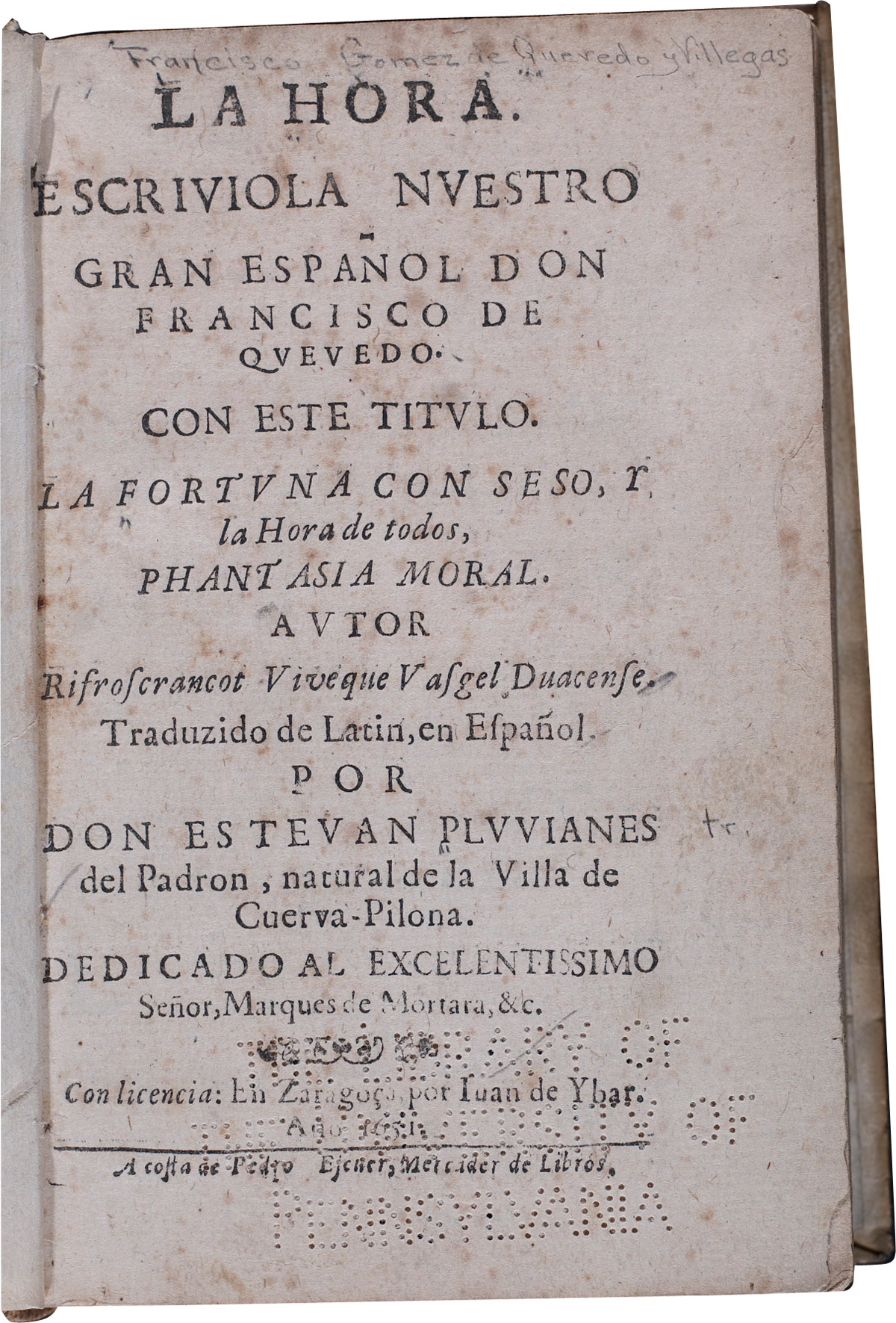In a chapter of his political satire called The Hour of All Men (La hora de todos), the Spanish classic Francisco de Quevedo invented around 1635 one of the central myths of modern anti-semitism: Jewish finance controls the world by means of the trans-national credit market. In this fanciful conspiracy plot, representatives of twelve major Jewish centers congregate in the Ottoman port of Salonica in order to receive a delegation of Machiavelian politicians from the Spanish government. Both sides agree to abolish Christianity and to replace it with the cult of money. The Jewish bankers vaunt that they have submitted the warfaring European powers by entangling them into an "indissoluble knot" of financial interdependence, in which Dutch fleets are armed with trading profits from Spain, and Spanish batallions raised with credit from Amsterdam stocks.
Quevedo superimposes a medieval religious stereotype to the unsettling economic realities created in the early seventeenth century by the first appearance of negotiable stocks, the stock exchange, central banks and a world wide trade in debts. The Portuguese Jewish merchants, whose dealings he satirizes, neither invented nor monopolized these instruments of financial rationality, but they used them at an early stage in the framework of what has been considered as the first global trading diaspora in modern history.
The Hour of All Men was printed under a pseudonym in 1650, the fifth edition, displayed here, being the first to mention the author's name. An English translation appeared in 1697.
